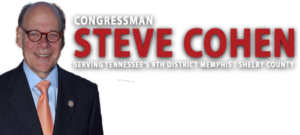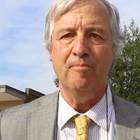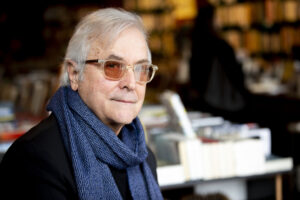
A portrait of David Talbot at The Green Arcade bookstore, Wednesday, Jan. 8, 2020, in San Francisco, Calif. Talbot shares his experiences following his stroke in his new book, Between Heaven and Hell.
The Assassination Archives and Research Center, in cooperation with the Mary Ferrell Foundation, announces an extraordinary research resource: The Talbot-Croft Archive. This archive features the recorded conversations and transcriptions that were developed as primary sources in researching David Talbot’s books, Brothers: The Hidden History of the Kennedy Years (2007) and The Devil’s Chessboard: Allen Dulles, the CIA and the Rise of America’s Secret Government (2015).
This project is made possible with the permission of the author, David Talbot and his long-time research associate, Karen Croft, whose participation and involvement was integral to the creation and collection of these materials.
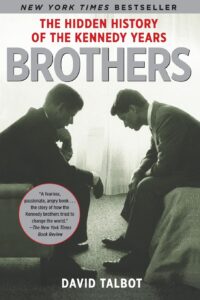 Interviews preserve and document perhaps our most precious resource, the stories of those who have made history as told in their own words. It is through the dedicated efforts of historians, authors, the men and women who practice objective and accountable investigative journalism, by which we may delve most deeply into our past. For those to whom history is more than the record and analysis of documented events, little can be of greater value than the candid reflections of those whose lives have influenced its shaping. History may have many authors and many voices, but once those figures have passed and those voices stilled, we are left to study what remains: the documented record of their words and deeds.
Interviews preserve and document perhaps our most precious resource, the stories of those who have made history as told in their own words. It is through the dedicated efforts of historians, authors, the men and women who practice objective and accountable investigative journalism, by which we may delve most deeply into our past. For those to whom history is more than the record and analysis of documented events, little can be of greater value than the candid reflections of those whose lives have influenced its shaping. History may have many authors and many voices, but once those figures have passed and those voices stilled, we are left to study what remains: the documented record of their words and deeds.
“The greatest brotherly duo in American political history. They gave their lives for the country — and they died for a reason, not simply at the hands of two ‘lone nuts.’ Those who know the true story of the Kennedy brothers’ lives (and I’m not talking about the PBS version) know how truly heroic they were.”
— David Talbot speaking about John and Robert Kennedy, (2016)
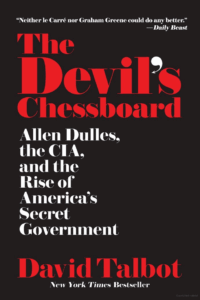 This introduction addresses two equal sides reflected within this project for which David Talbot is responsible. The first pertains to the unique value of unscripted and unrehearsed personal interviews with historical figures. The second, of course, must recognize the strength of David’s ethics, his social conscience, his deeply compassionate conception of literary and social objectives which convey his concerns about where things have gone terribly wrong and how, if we are all properly informed (hidden history-wise), we can work together to make our society better for all. In considering essential points that should be communicated in this introduction, we acknowledge the inseparable connection between the stories he chooses to explore, his intrinsic determination to focus his attention upon darkly complex and meaningful subjects and the absolute integrity of his personal and professional character. It is sometimes said that great works are the product of great souls. David’s life and his works exemplify the best of what it was to which John and Robert Kennedy, and the band of brothers who served them, were so passionately committed: Full use of your powers along lines of excellence.
This introduction addresses two equal sides reflected within this project for which David Talbot is responsible. The first pertains to the unique value of unscripted and unrehearsed personal interviews with historical figures. The second, of course, must recognize the strength of David’s ethics, his social conscience, his deeply compassionate conception of literary and social objectives which convey his concerns about where things have gone terribly wrong and how, if we are all properly informed (hidden history-wise), we can work together to make our society better for all. In considering essential points that should be communicated in this introduction, we acknowledge the inseparable connection between the stories he chooses to explore, his intrinsic determination to focus his attention upon darkly complex and meaningful subjects and the absolute integrity of his personal and professional character. It is sometimes said that great works are the product of great souls. David’s life and his works exemplify the best of what it was to which John and Robert Kennedy, and the band of brothers who served them, were so passionately committed: Full use of your powers along lines of excellence.
His works are a gift to all of us who are haunted by living in a society that emerged after our hopes, and perhaps our destinies, were disrupted by gunfire.
Some work of noble note, may yet be done,
Not unbecoming men that strove with Gods.
The lights begin to twinkle from the rocks:
The long day wanes: the slow moon climbs: the deep
Moans round with many voices. Come, my friends,
‘T is not too late to seek a newer world.
Push off, and sitting well in order smite
The sounding furrows; for my purpose holds
To sail beyond the sunset, and the baths
Of all the western stars, until I die.
It may be that the gulfs will wash us down:
It may be we shall touch the Happy Isles,
And see the great Achilles, whom we knew.
Tho’ much is taken, much abides; and tho’
We are not now that strength which in old days
Moved earth and heaven, that which we are, we are;
One equal temper of heroic hearts,
Made weak by time and fate, but strong in will
To strive, to seek, to find, and not to yield
(Ulysses, Tennyson)
Special thanks to AARC president, Dan Alcorn and MFF president, Rex Bradford; courtesy of David Talbot and Karen Croft, we are honored to present The Talbot–Croft Archive.
Dedicated to the memory of John and Robert Kennedy and to all those who continue to seek a newer world.
Interview 11
Audio: Senator Ted Kennedy
Edward Moore Kennedy (February 22, 1932 – August 25, 2009) was an American lawyer and politician from Massachusetts who served as a member of the United States Senate from 1962 to his death in 2009. A member of the Democratic Party and the prominent Kennedy family, he was the second-most-senior member of the Senate when he died. He is ranked fifth in U.S. history for length of continuous service as a senator. Kennedy was the younger brother of President John F. Kennedy and U.S. attorney general and U.S. Senator Robert F. Kennedy.
Kennedy was known for his oratorical skills. His 1968 eulogy for his brother Robert and his 1980 rallying cry for modern American liberalism were among his best-known speeches. He became recognized as “The Lion of the Senate” through his long tenure and influence. Kennedy and his staff wrote more than 300 bills that were enacted into law. Unabashedly liberal, Kennedy championed an interventionist government that emphasized economic and social justice, but he was also known for working with Republicans to find compromises. Kennedy played a major role in passing many laws, including the Immigration and Nationality Act of 1965, the National Cancer Act of 1971, the COBRA health insurance provision, the Comprehensive Anti-Apartheid Act of 1986, the Americans with Disabilities Act of 1990, the Ryan White AIDS Care Act, the Civil Rights Act of 1991, the Mental Health Parity Act, the S-CHIP children’s health program, the No Child Left Behind Act, and the Edward M. Kennedy Serve America Act. During the 2000s, he led several unsuccessful immigration reform efforts. Over the course of his Senate career, Kennedy made efforts to enact universal health care, which he called the “cause of my life.” By his later years, Kennedy had come to be viewed as a major figure and spokesman for American progressivism.
His memoir, True Compass, was published September, 2009.
*****
Interview 10
Audio : Joan Dulles – Part 1
Audio : Joan Dulles – Part 2
Audio : Joan Dulles – Part 3
Audio : Joan Dulles – Part 4
Audio : Joan Dulles – Part 5
Audio : Joan Dulles – Part 6
Audio : Joan Dulles – Part 7
Audio : Joan Dulles – Part 8
Audio : Joan Dulles – Part 9
Audio : Joan Dulles – Part 10
Joan Dulles (born 1923); Daughter of Allen Dulles, Director of CIA and Martha Clover Dulles.
*****
Interview 09
Audio: Robert S. McNamara
Robert Strange McNamara (June 9, 1916 – July 6, 2009) was the United States Secretary of Defense from 1961 to 1968, serving under Presidents John F. Kennedy and Lyndon B. Johnson, during which time the U.S. became deeply involved in the Vietnam War. He was a central figure in the decision-making process that led to the escalation of the conflict, a period often referred to as “McNamara’s War”. In his 1995 memoir, In Retrospect: The Tragedy and Lessons of Vietnam, McNamara acknowledged that the Vietnam War was a mistake and stated he knew it was wrong from the beginning, arguing that the U.S. should have withdrawn in 1963 when American casualties were minimal. He admitted that policymakers, including himself, had not adequately investigated the true stakes of the conflict.
McNamara’s role in the Vietnam War has been a subject of significant controversy and criticism. He was criticized for his micromanagement of military operations, with President Johnson reportedly noting that even minor bombing decisions required his approval. Despite his later regrets, McNamara maintained that his strategic and tactical abilities were superior to those of the military professionals and that his approach was sound. He also faced criticism for his lack of focus on the experiences of the troops, with only brief mentions of American soldiers in his memoir.
After leaving government service, McNamara became a prominent advocate for nuclear disarmament. He served as President of the World Bank from 1968 to 1981 and later became a leading voice in the movement to eliminate nuclear weapons, arguing that their existence posed an existential threat to humanity due to the risk of accidental or intentional use. His advocacy was informed by his experience during the Cuban Missile Crisis, which he believed was a moment when civilization narrowly avoided destruction. He co-authored a New York Times op-ed with Benjamin Ferencz promoting the International Criminal Court and was recognized as a key figure in the development of strategic nuclear arms control, particularly for his opposition to national ballistic missile defense systems.
McNamara’s controversial indictment of American policy in Vietnam, In Retrospect: The Tragedy and Lessons of Vietnam (1996), was a #1 national bestseller.
Robert S. McNamara passed away on July 6, 2009, at the age of 93. His legacy remains complex, marked by his pivotal role in the Vietnam War and his later efforts to promote global security and peace. In 1972, he was the target of an attempted assault on a ferry by a man who sought to confront him about his role in the Vietnam War; McNamara declined to press charges.
RELATED: Dr. John M. Newman’s JFK and Vietnam: Deception, Intrigue, and the Struggle for Power, Second Edition (Jan. 2017), is the culmination of an extraordinary series of research developments which include the author’s access to previously unavailable materials, analysis of newly released government documents, and the consequential relationship that was formed between Dr. Newman and former Secretary of Defense, Robert S. McNamara following the book’s debut in 1992.
*****
Interview 08
Audio: Ted Sorensen – Part 1
Audio: Ted Sorensen – Part 2
Theodore Chaikin (Ted) Sorensen (May 8, 1928 – October 31, 2010) was an American lawyer, writer, and presidential adviser. He was a speechwriter for President John F. Kennedy, as well as one of his closest advisers. President Kennedy once called him his “intellectual blood bank.” He collaborated with Kennedy on the book Profiles in Courage, “assembling and preparing” much of the research on which the book was based. Kennedy won the 1957 Pulitzer Prize for Biography. Sorensen helped draft Kennedy’s January 20, 1961 inaugural address and Lyndon Johnson’s Let Us Continue speech following Kennedy’s assassination, and was the primary author of Kennedy’s November 12, 1962 “We choose to go to the Moon” speech. He played a pivotal role in crafting essential correspondence during tense negotiations with the Soviet Union during the Cuban Missile Crisis, and contributed significantly to other major Kennedy speeches including President Kennedy’s “A Strategy of Peace” commencement address at American University, Monday, June 10, 1963. His biography of John F. Kennedy, Kennedy, became an international bestseller. In 2008, he published a memoir, Counselor: A Life at the Edge of History.
Prior to the 50th anniversary of President Kennedy’s assassination, JFK and the Unspeakable: Why He Died and Why it Matters author James W. Douglass spoke with Christopher Lydon for the interview program, Open Source. During that discussion, the following exchange was recorded:
Theodore C. Sorensen Personal Papers
*****
Interview 07
Audio: Adam Walinsky – Part 1
Audio: Adam Walinsky – Part 2
Adam Walinsky (1937 – 2023) Attorney, speechwriter and aide to Senator Robert F. Kennedy. A proponent of peace, a passionate advocate for civil rights and progressive social policies, whose eloquence and idealism equaled his directness and pragmatism. He was perceived by many to have been to RFK what Ted Sorensen was to President Kennedy. Many of his words and phrases will live in perpetuity. He is credited with primary authorship of Senator Edward M. Kennedy’s eulogy of his brother, delivered at St. Patrick’s Cathedral, 8 June, 1968:
My brother need not be idealized, or enlarged in death beyond what he was in life; to be remembered simply as a good and decent man who saw wrong and tried to right it, saw suffering and tried to heal it, saw war and tried to stop it. Those of us who loved him, and who take him to his rest today, pray that what he was to us and what he wished for others, will some day come to pass for all the world. As he said many times, in many parts of this nation, to those he touched and who sought to touch him, ‘Some men see things as they are and say, why? I dream things that never were and say, why not?’
Click on this title for AARC Board member David Talbot’s remembrance: Adam Walinsky, Restless in Peace
*****
Interview 06
Audio: Carl Kaysen – Part 1
Audio: Carl Kaysen – Part 2
Carl Kaysen (March 5, 1920 – February 8, 2010) was an American academic, policy advisor and international security specialist at the Massachusetts Institute of Technology (MIT) and co-chair of the Committee on International Security Studies at the American Academy of Arts and Sciences. He was the father of Girl, Interrupted author Susanna Kaysen.
Kaysen worked for President John F. Kennedy as Deputy National Security Advisor, and served directly under National Security Advisor McGeorge Bundy. Kaysen took over the position from Walt Rostow in 1961 and concentrated on the key issues of the Kennedy Administration such as nuclear weapons, foreign trade, international economic policy and international security policy.
* * *
President Kennedy spoke with his brother, Attorney General Robert Kennedy, from the White House on a recorded phone call in June 1963. Among the topics was a recommendation by RFK that the administration provide covert support to the nationalist movement leader Eduardo Mondlane in Mozambique. Carl Kaysen is mention several times in the conversation as the official to rely on, and it is clear the Kennedys held Kaysen in high esteem. Download the transcript HERE: JFKPOF-TPH-18B-3-TR
[In late 1963 big game hunter and former Nazi assassin Werner von Alvensleben visited Dallas from Mozambique as the guest of D. Harold Byrd, owner of the Texas School book depository building. Byrd was reported to have been in Mozambique at von Alvensleben’s safari camp on November 22, 1963, although there is photographic evidence to contradict this report.]
* * *
Kaysen was MIT’s David W. Skinner Professor of Political Economy, Emeritus, and former director of the Institute’s Program in Science, Technology, and Society.
A trained economist, Kaysen broadened his interests early in his career and participated in significant national-security initiatives as a high-level official in the Kennedy administration. Later Kaysen spent a decade as director of the Institute for Advanced Study in Princeton, N.J., and, having joined MIT in 1976, served as director of the Institute’s Program in Science, Technology, and Society during the 1980s.
A native of Philadelphia, Kaysen received his BA from the University of Pennsylvania in 1940. During World War II, he worked as an economist for the United States Office of Strategic Services, then in intelligence matters for the U.S. Army Air Force. After the war, Kaysen resumed his studies, earning an MA from Harvard in 1947, and then a PhD from Harvard in economics in 1954. Harvard named him a professor of economics in 1957.
One of many scholars recruited from Cambridge to join the Kennedy administration, Kaysen served from 1961 to 1963 as deputy special assistant for national security affairs. In a 2008 interview with MIT’s Center for International Studies, Kaysen stated that his work on the team negotiating the Limited Test Ban Treaty between the United States, the Soviet Union and the United Kingdom was among the proudest moments of his career. Signed in 1963, the treaty prohibited all nuclear test detonations except those underground. “I treasure a photo of the president, [Averell] Harriman, and me in Hyannis Port when we got back from Moscow,” Kaysen said.
After leaving Washington, Kaysen returned to Harvard, before leaving once again to become director of Princeton’s Institute for Advanced Study from 1966 to 1976. While at the institute, he founded its School of Social Science.
When he once again returned to Cambridge, he joined MIT and directed the Institute’s new program on Science, Technology, and Society from 1981 to 1987. In retirement, Kaysen remained an active scholar, affiliated with the MIT Center for International Studies; he was also co-chair of the Study Committee on International Security Studies for the American Academy of Arts and Sciences, of which he was a fellow.
*****
Interview 05
Audio: Gaeton Fonzi
Gaeton Fonzi (October 10, 1935 – August 30, 2012) was an American investigative journalist and author known for his work on the assassination of John F. Kennedy. He was a reporter and editor for Philadelphia magazine from 1959 to 1972, and contributed to a range of other publications, including The New York Times and Penthouse. He was hired as a researcher in 1975 by the Church Committee and by the House of Representatives Select Committee on Assassinations (HSCA) in 1977, and in 1993 published a book on the subject, The Last Investigation, detailing his experiences as a Congressional researcher as well as his conclusions about the JFK assassination.
Fonzi was born Gaetano Fonzi to Leonora and Gaetano Fonzi, a barber, in Philadelphia on October 10, 1935; he later shortened his first name. He grew up in West New York, New Jersey. He studied journalism at the University of Pennsylvania and edited its daily newspaper, The Daily Pennsylvanian.
Fonzi began his journalism career at the Delaware County Daily Times, before moving to Philadelphia magazine after serving in the army.
In 1967, following a three-year investigation, Fonzi co-authored a Philadelphia magazine article exposing the activities of Harry Karafin, an award-winning American investigative journalist associated with The Philadelphia Inquirer who sought and accepted payment from potential reporting subjects in order to avoid negative coverage. Karafin was fired and then convicted on 40 counts of blackmail and corrupt solicitation.
In 1970, Fonzi published a book about Walter Annenberg and his publishing empire, which included The Philadelphia Inquirer.[7] In 1972, having helped Philadelphia to its first National Magazine Award, Fonzi left Philadelphia and moved to Miami, where he worked on Miami Monthly and Gold Coast magazines.
In 1975, he was hired by Senator Richard Schweiker as a researcher for the Church Committee into the activities of U.S. intelligence agencies, and in 1977 he was hired as a researcher for the House of Representatives Select Committee on Assassinations (HSCA). According to The New York Times, Fonzi was recruited as an investigator for the HSCA “mainly on the strength of scathing magazine critiques he had written about the Warren Commission and its conclusion that Lee Harvey Oswald had acted alone in killing the president in Dallas on Nov. 22, 1963.”
In his work for the HSCA, Fonzi focused on the role of Cuban exile groups and the links those groups had with the Central Intelligence Agency (CIA) and the Mafia. He obtained testimony from Antonio Veciana that the latter once saw his CIA contact, whom Fonzi established was David Atlee Phillips, conferring with Lee Harvey Oswald. In the course of Fonzi’s research, he attempted to interview Oswald’s friend George de Mohrenschildt on March 31, 1977; hours later, de Mohrenschildt was dead, an apparent suicide.
In 1980, Fonzi published an article in The Washingtonian on the JFK assassination. The article aroused enough interest from the CIA for it to investigate whether Fonzi had breached his 1978 non-disclosure agreement with the CIA, which he had signed in order to gain access to classified files. (It concluded that Fonzi had not.) The article later formed the basis for his 1993 book, The Last Investigation. In 2012, The New York Times said of The Last Investigation that “historians and researchers consider Mr. Fonzi’s book among the best of the roughly 600 published on the Kennedy assassination, and credit him with raising doubts about the government’s willingness to share everything it knew.”
*****
INTERVIEW 04
Audio: Robert Maheu – Part 1
Audio: Robert Maheu – Part 2
Audio: Robert Maheu – Part 3
Audio: Robert Maheu – Part 4
“Because he’s a no-good, dishonest son of a bitch, and he stole me blind. … you wouldn’t think it could be possible with modern methods of bookkeeping and accounting and so forth for a thing like the Maheu theft to have occurred, but believe me, it did, because the money’s gone and he’s got it.”
“Bitterly is a mild way of putting it. Note, everything [Maheu] has done, everything short of murder, as a result of being discharged. I don’t supposed [sic] any disgruntled employee who was discharged has even come close to Mr. Maheu’s conduct. … In light of that litigation and the struggle and harassment he has embarked up on, it’s very, very difficult for me to tell you precisely the motives that led to [my leaving Las Vegas] without having some effect on the devastating, horrifying program of harassment that Maheu and his associates have launched against me.”
As a result of the first set of statements by Hughes, Maheu sued the Hughes Tool Company (which had Hughes as its sole owner) once again, this time for libel; he won the suit, and was paid $2.8 million. However, this settlement was later overturned upon appeal.
RELATED: John Simkin’s listing of Robert Maheu’s bio at Spartacus-Educational
*****
INTERVIEW 03
Audio: Richard Goodwin – Part 1
Audio: Richard Goodwin – Part 2
“Harvey was an asshole. Angleton, I didn’t know, but Harvey was a real asshole.”
Transcript: TBA
For 42 years, he was married to the presidential historian and Pulitzer Prize-winning author Doris Kearns Goodwin on whose book Team of Rivals: The Political Genius of Abraham Lincoln the Steven Spielberg movie Lincoln was partly based.
Goodwin also authored four books including The American Condition, Promises To Keep: A Call For A New American Revolution and his memoir, Remembering America: A Voice From The Sixties, the latter of which which was re-released in e-book format in July 2014.
He was often called upon to offer reflections and analysis for documentaries, articles and books about the Kennedy and Johnson Administrations.
His play The Hinge of the World, a drama about the confrontation between Galileo Galilei and Pope Urban VIII, which was published by Farrar Straus & Giroux, has been adapted by screenwriter Alyssa Hill for a feature film currently in development at Warner Bros.-based Gulfstream Pictures.
Goodwin graduated summa cum laude from Tufts University and Harvard Law School. He was the recipient of Harvard Law School’s prestigious Fay Diploma. He served as a Law Clerk to United States Supreme Court Associate Justice Felix Frankfurter, before being appointed as special counsel to the Legislative Oversight Subcommittee of the U.S. House of Representatives.
At the age of just 29, he became an aide to President Kennedy, having first traveled with the then-presidential candidate, writing speeches for his campaign. After Kennedy’s election, he served as Assistant Special Counsel to the President and as a key specialist on President Kennedy’s Task Force on Latin-American affairs, originating the Alliance for Progress and meeting in secret with Che Guevara in Uruguay in August 1961. He also served as Deputy Assistant Secretary of State for Inter-American Affairs, and was Secretary-General of the International Peace Corps.
After Kennedy was assassinated on Nov. 22, 1963, Goodwin served as the Special Assistant to President Johnson, where he formulated the concept of the Great Society and drafted many of Johnson’s major addresses and messages dealing with civil rights.
Johnson then asked him to write his historic 1965 civil rights speech, which came to be known as the “We Shall Overcome” speech that the President delivered on March 15, 1965 to the joint session of the United States Congress.
This speech was a milestone for voting rights and the Voting Rights Act of 1965 that Johnson signed five months later.
In his seminal book A Thousand Days, Arthur M. Schlesinger, Jr. described Goodwin as the “archetypal New Frontiersman”: “Goodwin was the supreme generalist who could turn from Latin America to saving the Nile Monuments, from civil rights to planning a White House dinner for the Nobel Prize winners, from composing a parody of Norman Mailer to drafting a piece of legislation, from lunching with a Supreme Court Justice to dining with Jean Seberg — and at the same time retain an unquenchable spirit of sardonic liberalism and unceasing drive to get things done.”
Goodwin resigned from the White House in 1966 and joined the U.S. Anti-War Movement. He even briefly directed Eugene McCarthy’s presidential campaign in New Hampshire and Wisconsin, and wrote speeches for presidential candidate Edmund S. Muskie, before joining Senator Robert F. Kennedy’s presidential campaign.
Goodwin was with Senator Robert Kennedy in Los Angeles when he was killed in 1968.
He was the recipient of many awards and honors, including the John F. Kennedy Library Distinguished American honor, the Aspen Institute’s Public Leadership Award, and honorary degrees from Tufts University, UMass Lowell and Hebrew Union College.
*****
INTERVIEW 02
Audio: Peter Maheu
Transcript: Peter Maheu
Peter Maheu (10 June, 1942 – 6 April, 2016) was a businessman and former employee of CIA and Howard Hughes. He worked for his father, Robert Maheu, who was an extremely well-connected American businessman and lawyer, and for billionaire Howard Hughes. In 1963 Peter Maheu worked within CIA’s Office of Security. He was a licensed private investigator in Nevada and California, became a world leader in assuring regulatory compliance in the gaming industry. He wrote articles and lectured extensively on preventing business fraud. And he became involved in the emergence of overseas gaming, focusing on keeping organized crime out of casinos in those burgeoning markets.
Peter Maheu delivered lectures before some of the world’s most prestigious groups. Among them were the World Presidents’ Organization, the International Masters of Gaming Law Conference, the International Association of Gaming Attorneys Conference and the North American Gaming Regulators Association.
Early on, Peter worked for his dad’s company, Robert A. Maheu and Associates, where Peter played a major role in the management of not only Hughes’ gaming properties but in Hughes’ vast Nevada real estate and mining interests. Much of what are now high-end residential communities in northwest Las Vegas were built on land Hughes purchased as barren desert.
After breaking out on his own, Peter Maheu founded — and was president of — Trademark Protection Services, where he specialized in preventing trademark and copyright infringement on his clients’ brands.
TPS was said to have been at one time the nation’s largest firm of its type, with 30 offices nationwide that each employed a cadre of investigators and attorneys. Maheu’s clients included such business giants as 20th Century Fox, Walt Disney Co., Mirage Studios and Hard Rock Café.
He was known for his work with the Honor Flight Network of Southern Nevada, a non-profit group that sends World War II veterans to Washington, D.C., to visit memorials created in their honor. He was also involved in the business investigation company, Global Intelligence International.
ADDENDUM from AARC President Dan Alcorn: Peter Maheu’s father, Robert Maheu’s first job for CIA was to block Aristotle Onassis from shipping the Saudi oil. Maheu installed a telephone tap on an Onassis phone in New York. CIA favored Stavros Niarchos for the contract. CIA’s Al Ulmer went to work for Niarchos in London in 1962. Niarchos was a client of Werner von Alvensleben.
*****
INTERVIEW 01
Audio: Arthur Schlesinger, Jr.
Transcript: Arthur Schlesinger, Jr.
In 1968, Schlesinger actively supported the presidential campaign of Senator Robert F. Kennedy, which ended with Kennedy’s assassination in Los Angeles. Schlesinger wrote a popular biography, Robert Kennedy and His Times, several years later. He later popularized the term “imperial presidency” during the Nixon administration in his 1973 book, The Imperial Presidency.

